- Home/
- Funding/
- Outbreak and Crisis Response Appeal/
- What we do

What we do
Serving the most vulnerable during crises
The World Health Organization is at the centre of the global health architecture, co-ordinating an effective response across health ministries, UN agencies, WHO teams, and over 1,600 technical and operational partners.
Our presence in over 150 countries means that when a health crisis strikes, WHO is already on the ground and able to serve as the first responder and a provider of last resort for the world’s most vulnerable people.
Building resilience
WHO’s activities during health emergencies are designed to ensure sustainable improvements to the resilience of health systems and their ability to deliver safe and scalable clinical care during health emergencies. WHO also places a strong focus on strengthening collaborative surveillance capabilities, community protection and the delivery of equitable access to medical countermeasures to strengthen systems for future emergencies.
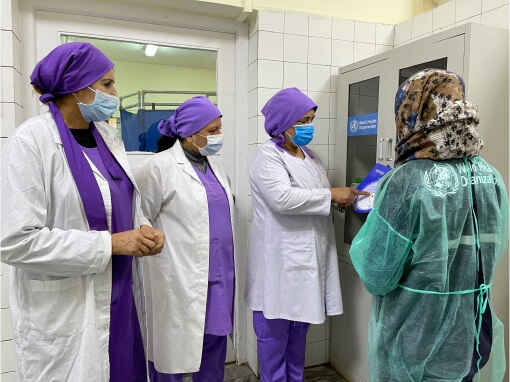
A team of WHO staff visiting Malayi and Rabia Balkhi specialized women hospitals in Kabul.
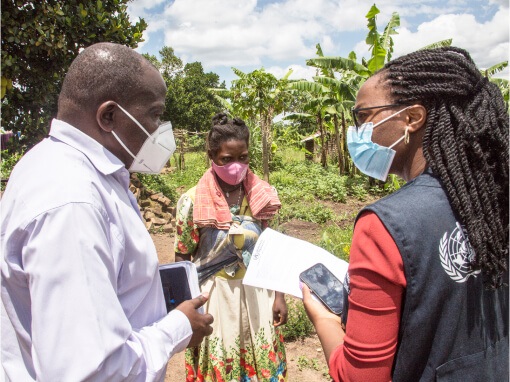
Ever present, ever ready
WHO’s on-the-ground presence in more than 150 countries means that when a health crisis strikes, our experts are able to serve as first responders and rapidly coordinate support.
Community collaboration at the heart of emergency response
All health emergencies begin and end in communities. When WHO responds to a health emergency, it does so in collaboration with affected communities, health care professionals, local authorities and partners to design a response that has maximum impact because it is tailored to each specific context.
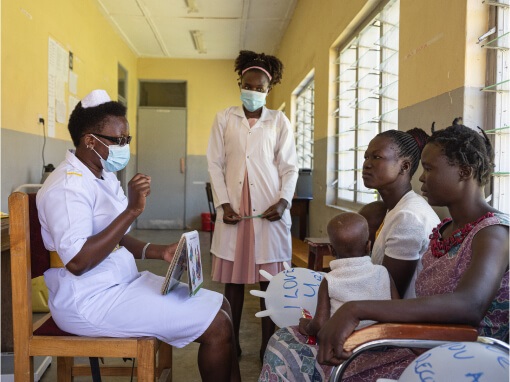
Sister Recho, a midwife in the Nutrition Department of Soroti Regional Referral Hospital speaks to mothers about nutrition.
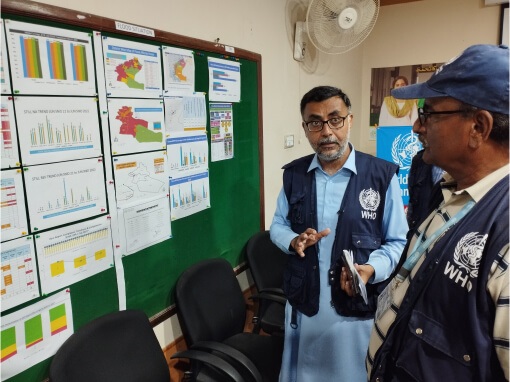
WHO delegation visiting Sukkur Emergency Operations Center (EOC) for Flood response.
Leading and coordinating an effective, evidence-lead response
WHO plays a crucial role as the official Health Cluster Lead during emergencies, coordinating teams across health ministries, UN agencies, WHO itself, and over 1600 operational partners – ensuring that the right resources are used to their best effect.
Monitoring and evaluating health threats and the impacts of response
WHO ensures an effective and adaptable response to health emergencies by putting accurate, timely information into the hands of key decision-makers.
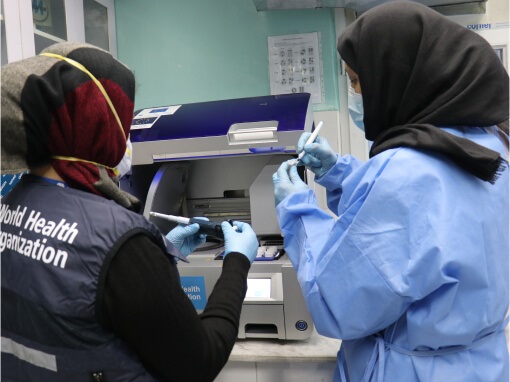
In partnership with European Union (EU), World Health Organization (WHO) is scaling up COVID-19 prevention and response activities in 34 provinces in Afghanistan.
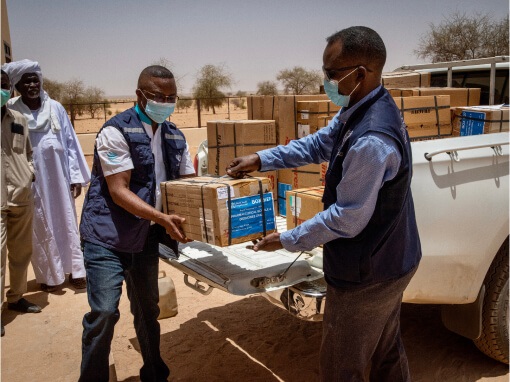
North Darfur, Sudan - 25 April 2022: WHO’s North Darfur Sub-Office delivers supplies to a new health care centre in the village of Abu Gaw.
Getting people, technology and medical care to communities in need
WHO leads the logistical operations support during health emergencies – delivering rapid, flexible and predictable access to life-saving services and supplies to communities in need, often in some of the most remote and challenging contexts.




